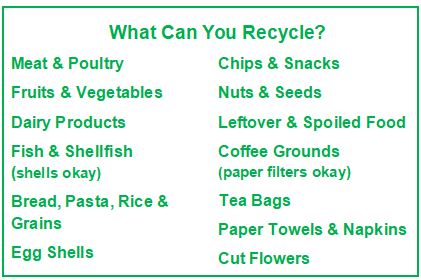Stamford Food Scrap Recycling Initiative
Stamford Food Scrap Recycling and the City of Stamford need your support to start a Food Scrap Recycling Program to reduce the amount of garbage sent to landfills by diverting our food scraps to compost.
Leader
Stamford Food Scrap Recycling Caryn F
Location
130 Magee Avenue STAMFORD, CT 06903-1718
About the project
Join us as we kick off a voluntary Food Scrap Recycling initiative in Stamford. Recycling is the environmentally sustainable way to turn your kitchen scraps into compost without needing a backyard compost pile of your own. Under this program, Stamford residents will be able to recycle ALL of their food waste including cooked, raw and spoiled food, bones, shells, coffee grounds, paper towels and napkins, and even meat.
Convenient home collection bins and liner bags will be available for purchase at cost. Residents will drop off their kitchen scraps at the Katrina Mygatt Recycling Center on Magee Avenue where a new Food Scrap Recycling area will be added.
Your tax deductible donation will help pay for information materials, bins for the recycling center and the cost of hauling the recycled food scraps to a local composter. The City has agreed to allot $10,000 to this project.
When we have raised the funds to launch, Stamford will proudly join neighbors in Greenwich, Darien and several Westchester towns in recycling food and other compostable items.
The Steps
- Task 1 – A volunteer citizen committee has been formed and, with the City, has researched what other towns are doing to recycle food scraps. The committee has developed a budget and proposal for the initiative. The City has agreed to contribute $10,000 to this project.
- Task 2 – Raise the remainder ($15,264) of the funds needed to launch this program
- Task 3 – Produce and purchase signage, bins and home kits
- Task 4 – Prepare printed brochures, website and publicity materials to inform and instruct residents about the Food Scrap Recycling Program
- Task 5 – Launch once needed funds are raised
Why we‘re doing it
Food scraps are one of the largest components of trash sent to landfills and incinerators. But food waste is not trash; it is a resource that can be turned into compost that enriches our soil.
Recycling food scraps into compost captures their nutrients and energy and returns them to the environment, resulting in cleaner soil, water and air. When food scraps are sent to a landfill or incinerator this resource is lost. In a landfill, food scraps create methane, which is a potent greenhouse gas that contributes to global warming. When sent to an incinerator, they reduce its efficiency because they contain water and don’t burn well.

